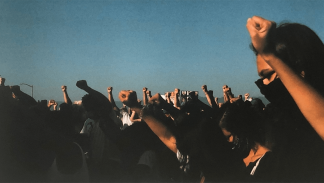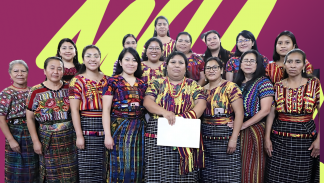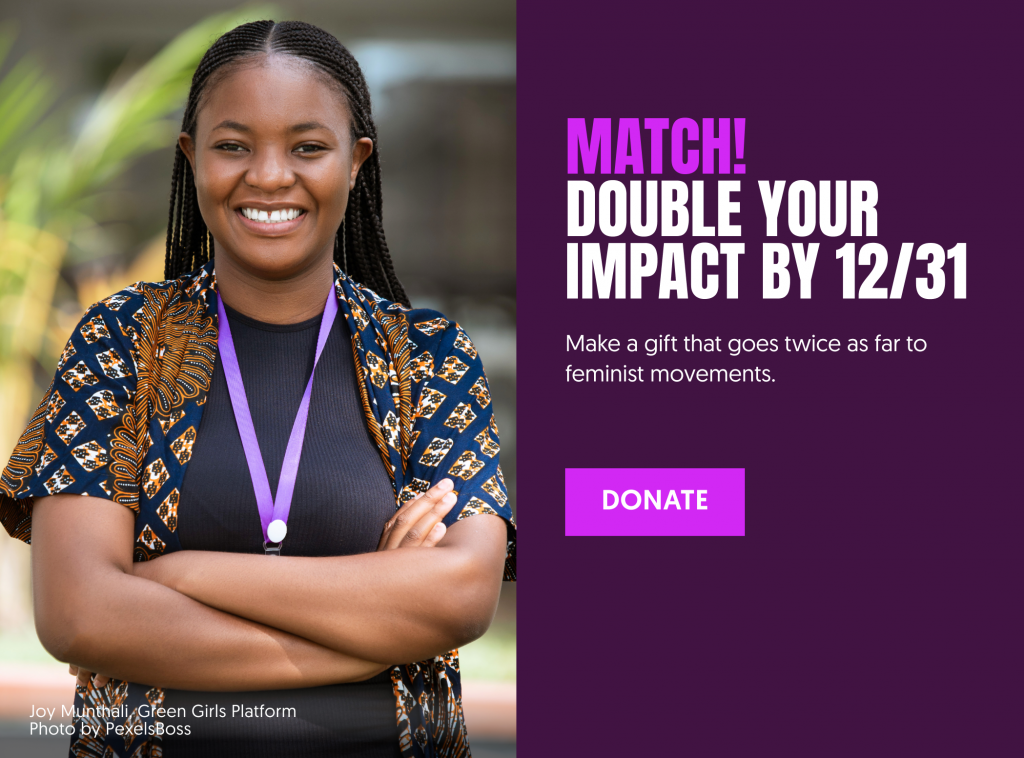Political empowerment for women in the Middle East
Political revolutions and instability in the Middle East have mobilized women in new ways. In the face of political unrest and explicit threats to their rights, many women are increasing their activism to make their voices heard. As a result of this surge of political engagement from women, however, fundamentalist and conservative leaders and governments are pushing back, upping their attacks on women’s human rights in an effort to maintain their power.
Dr. Magdy Abdel Hameed Belal is the CEO of the Egyptian Association for Community Participation Enhancement (EACPE), which works with grassroots women on human rights education and developing democracy. “Since the political revolution, two opposing viewpoints have gained support. First, women became more involved in politics, and learned more about their rights and why they must defend their rights,” says Belal. “But on the other side, the fundamentalists have gained power, and they are working against women…We are in a struggle—sometimes we win, and sometimes we lose.”

Egyptian women working with EACPE discuss election monitoring
As a result of this struggle, women’s groups have doubled down on their commitments to make sure women and girls are involved in political processes and are economically empowered. “After the revolution [in Egypt], the Muslim Brotherhood was trying to cancel all the gains that women made in the past. So [women’s rights organizations]— we were in this fight,” says Yara Fathi Abdel-Salam of the women’s organization Appropriate Communication Techniques for Development. “Even after the new government came into power, we could feel that there is ignorance toward women. Women’s rights were not on the agenda, so we and other NGOs had to mobilize and become more involved in political advocacy because of the threats against women’s rights.”
Fundamentalist opposition
“The patriarchal culture in the region is one of the foremost challenges to women participating in politics,” says Belal. “Men use the Islamic religion in order to restrict women. This mentality is very strong in our region. And it’s not only religion, it is also the old culture, the traditions.”
Even when women do win rights, they aren’t necessarily able to enjoy them because they are disempowered by strong social norms and traditions. For example, although women in Egypt have voting rights, the Egyptian Association for Community Participation Enhancement (which conducts regular election monitoring) has found that in rural villages, husbands, fathers, or brothers will tell women how to vote—or even simply take a woman’s ballot from her and fill it out as they please.
Laws in the region, including both old laws and recent ones, restrict women’s human rights and serve as explicit evidence that those in power do not consider women equals. For example, in 2014 the Iraqi parliament presented a draft law that attempted to make it legal to marry a girl as young as nine years old, permit marital rape, and allow for the marriage of multiple wives. A long-standing law in Lebanon does not allow women to pass on their citizenship, meaning that if a Lebanese woman marries a non-Lebanese man, her children do not have Lebanese citizenship. And fundamentalist groups are a powerful and growing threat, with strategies that directly target women, including the kidnapping and forced sexual slavery of Yazidi women in Iraq by the so-called Islamic State group (ISIS).

Lina Abou Habib, Global Fund for Women advisor for Middle East North Africa region
“This is a time when women have to take the reins. They have to defend themselves, they have to defend their rights—they have to defend their mere existence. These are not ordinary times,” says Lina Abou Habib, Global Fund for Women’s advisor in the region. “We’re dealing with a monstrous opponent, an opponent that does not think that women and girls are human beings. Hence the importance of political participation, of having a voice, of working collectively, of being able to have resources to continue to work, organize, and engage.”
Watching from afar
With so many powerful forces opposing women’s human rights in the Middle East, many in the region feel that international support has been far too weak. Leaders of women’s groups across the region stress the need for international support and solidarity.
“Some donors have backed off their support [of groups in Egypt] because they don’t want to be involved with the problems. They think it’s a headache,” says Belal. “I am critical of this, of course. I believe that it is the world’s responsibility toward Egyptian civil society to support and help us in our crisis. This is a fact for me.”
Beyond financial support, women also call for international solidarity and expressions of support, citing both kinds of support as critical to resisting fundamentalism. Women’s groups maintain that while fundamentalist threats against women’s rights are at the moment most powerful in the Middle East, the issue is, in fact, a global problem. “With what is happening globally, from Belgium, to Paris, to Cote D’Ivoire, to Tunisia, Turkey, all the countries north and south, I think it’s high time we all realize the battle against extremism and fundamentalism is a global international battle,” says Lina Abou Habib. “It is not confined within the boundaries of a country or a region. It is international. It has no boundaries. Therefore, the more people can direct resources to challenging it internationally, the more people can engage internationally, the more people speak out internationally—that is the only thing that matters at this point.”
Indeed, women in countries around the world—not just the Middle East—are experiencing threats to their rights from conservative leadership. From preserving reproductive rights to advocating for laws that protect women, activists know that a united, global opposition to oppressive regimes—including vocal, international support—is the most effective strategy.
Women won’t back down
Despite these challenges, women’s groups in the region are resilient. They are certain women will continue their resistance despite challenges, and hopeful about the potential for women’s political power to continue to grow. “The women in Egypt are powerful. If women will participate in political affairs, they will be very effective. They can change the political landscape in Egypt. They will change it,” says Belal. “Women are one-half of Egypt, at least 45 million people. These 45 million people have big potential, not only economically but politically. They have to share in deciding their lives, in choosing how they want to live.”
“All of us are keeping strong against amazing, barbaric forces that have unleashed all their evils against women,” says Lina Abou-Habib. “The courage of women is inspiring— the determination of not letting go, not giving up. To be part of this movement that is pushing against all odds is totally inspiring.”
Support the daring women who are demanding progress.
Women leaders and groups are responding to painful attacks on their human rights and their dignity in the Middle East. You can help overcome repression to support daring women seeking justice.
This is a time when women have to take the reins. They have to defend themselves, they have to defend their rights—they have to defend their mere existence. These are not ordinary times.Lina Abou Habib



